Nature therapy, mindfulness, herbal remedies, yoga, art therapy, music, aromatherapy, acupuncture, and balanced nutrition are complementary holistic mental health approaches that enhance wellbeing, stress reduction, mood improvement, and mental resilience through engaging with natural environments and ancient practices.
In today’s fast-paced world, prioritizing holistic mental health is more crucial than ever. Explore a range of complementary therapy methods that offer natural solutions for enhancing wellbeing. From nature therapy and mindfulness practices to herbal remedies and yoga, discover how these ancient techniques empower individuals to navigate stress, improve mental clarity, and cultivate a deeper sense of balance.
Exploring Nature Therapy for Mental Wellbeing
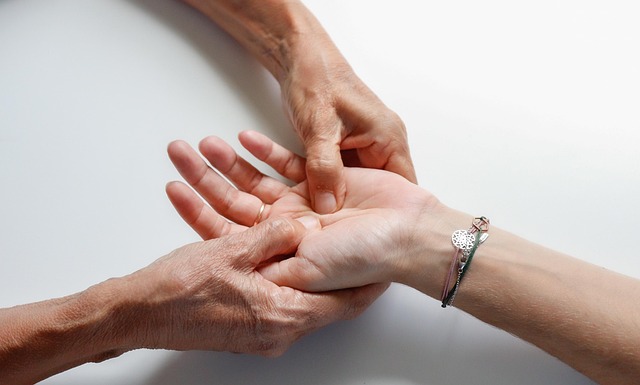
Nature therapy, also known as ecotherapy, is a holistic approach to enhancing mental wellbeing by immersing oneself in natural environments. This ancient practice recognizes the profound impact that spending time outdoors can have on our psychological and emotional states. By engaging with nature, whether through walking in forests, gardening, or simply sitting by a body of water, individuals can experience reduced stress levels, improved mood, and increased feelings of calmness and clarity.
In today’s fast-paced digital world, many people struggle with the side effects of prolonged screen time and urban living, such as burnout, anxiety, and depression. Nature therapy offers a much-needed respite from these stressors by reconnecting individuals with the natural world. This holistic mental health approach encourages mindfulness, relaxation, and self-discovery, ultimately fostering a deeper sense of grounding and well-being.
Power of Mindfulness and Meditation Techniques
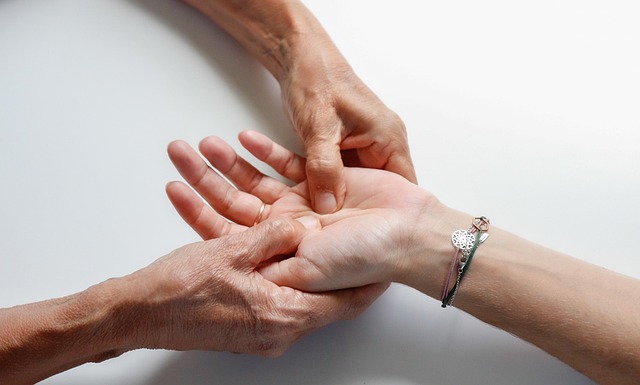
Mindfulness and meditation are powerful complementary therapy methods that play a pivotal role in enhancing holistic mental health. These ancient practices encourage individuals to focus on the present moment, cultivating awareness and acceptance of thoughts and feelings without judgment. By integrating mindfulness into daily routines, individuals can reduce stress, anxiety, and depression, promoting emotional well-being.
Meditation techniques vary, allowing people to explore different styles to find what resonates with them. From guided visualizations to mindfulness-based stress reduction (MBSR) programs, each approach offers unique benefits. Regular practice strengthens mental resilience, improves focus, and fosters a sense of inner calm. This, in turn, enables individuals to navigate life’s challenges more effectively while cultivating a deeper connection with themselves and their surroundings.
Herbal Remedies: A Holistic Approach to Healing

Herbal remedies have long been a cornerstone of holistic healing practices, offering a natural and safe approach to supporting both physical and mental well-being. In the context of holistic mental health, these herbal treatments provide a gentle yet powerful means to alleviate symptoms associated with various emotional and psychological conditions. From calming teas made from lavender and chamomile to invigorating blends containing ginger and peppermint, each herb carries unique properties that can help balance the mind and body.
By utilizing herbal remedies, individuals can tap into nature’s pharmacy, fostering a deeper connection with their innate healing capabilities. This ancient practice respects the intricate relationship between plants, people, and the environment, promoting overall health rather than merely targeting symptoms. Incorporating herbal medicine as part of a holistic mental health regimen allows for personalized care, empowering individuals to take an active role in their journey towards mental well-being.
The Role of Yoga in Mental Health Support

Yoga, an ancient practice with roots in India, has gained significant recognition for its complementary role in supporting holistic mental health. Beyond its physical benefits, yoga offers a calming and grounding experience that can help reduce symptoms of anxiety, depression, and stress. The mind-body connection cultivated through mindful breathing, gentle movements, and meditation promotes relaxation and enhances self-awareness, allowing individuals to develop healthier coping mechanisms.
Incorporating yoga into mental health care plans can provide a natural way to manage symptoms while fostering resilience and emotional well-being. Its accessibility and adaptability make it suitable for people from various backgrounds and abilities, making it an invaluable tool in promoting holistic mental health alongside traditional therapeutic approaches.
Art Therapy: Unlocking Emotional Expression
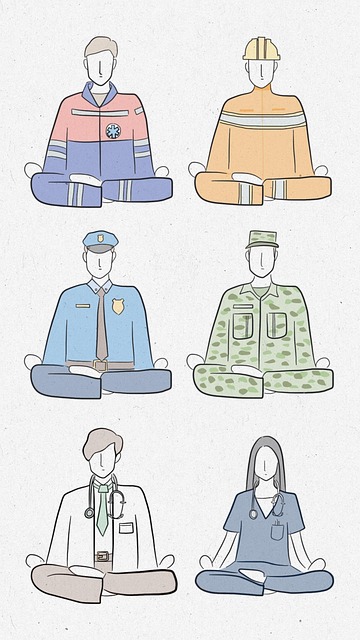
Art therapy offers a unique and powerful approach to healing and self-expression, serving as a valuable complementary method for enhancing holistic mental health. Through creative processes, individuals can tap into their emotions and experiences in a non-verbal way, allowing for profound personal growth and insight. On canvas or through various art forms, clients can convey complex feelings that may be difficult to articulate verbally, providing therapists with a unique window into their inner world.
This therapeutic method encourages self-exploration, fostering a safe space where emotions are free to flow. The act of creating art helps individuals process traumas, manage stress, and enhance their ability to cope with challenges. By engaging in artistic expression, participants can gain a better understanding of themselves, leading to improved mental well-being and a more positive outlook on life.
Music as a Complementary Healing Tool
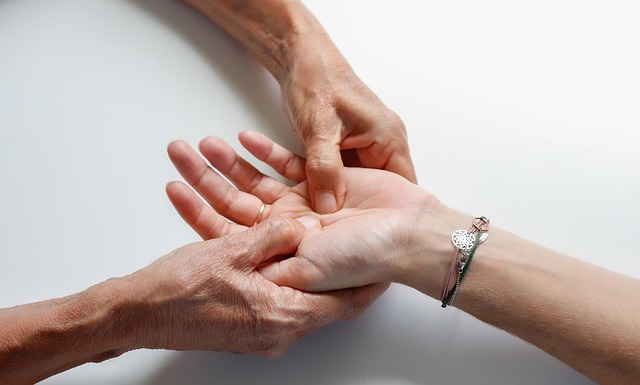
Music has long been recognized as a powerful tool for healing and well-being, offering a unique and accessible method to support holistic mental health. The therapeutic effects of music are multifaceted; it can evoke emotions, reduce stress, and even aid in physical rehabilitation. In the context of complementary therapy, music is used to enhance traditional treatments, providing a sense of calm and relaxation that complements other holistic approaches.
For individuals seeking to improve their mental well-being, music therapy offers a creative outlet for expression and an avenue to process emotions. Studies suggest that engaging with music can lower blood pressure, reduce anxiety, and improve mood, making it a valuable addition to any holistic mental health regimen. Whether through listening, playing, or creating, music provides a means to connect with oneself and tap into the profound healing potential hidden within every melody.
Aromatherapy: Scent-Based Stress Relief
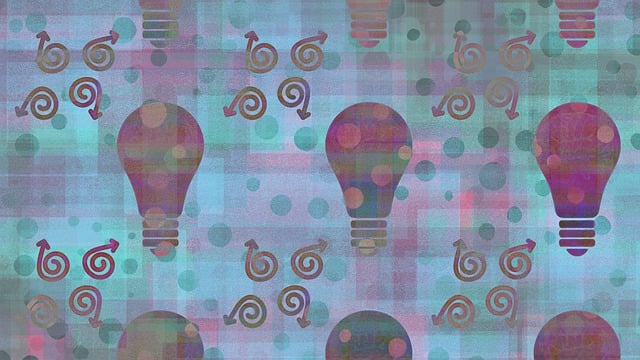
Aromatherapy, as a complementary therapy method, has gained popularity for its potential to provide stress relief and promote relaxation in individuals seeking holistic mental health solutions. This ancient practice involves using essential oils derived from plants to positively impact both the mind and body. By inhaling or applying these concentrated natural extracts, aromatherapy can stimulate sensory receptors, influencing various physiological processes and evoking emotional responses.
The power of scent is believed to unlock memories and evoke feelings associated with different aromas. For instance, lavender is renowned for its calming properties, helping to reduce anxiety and induce sleep. Similarly, citrus scents like lemon or orange can uplift mood and energize the senses. These natural fragrances offer an alternative approach to managing stress and improving overall well-being, making aromatherapy a valuable tool in the realm of holistic mental health care.
Acupuncture for Balancing Mind and Body
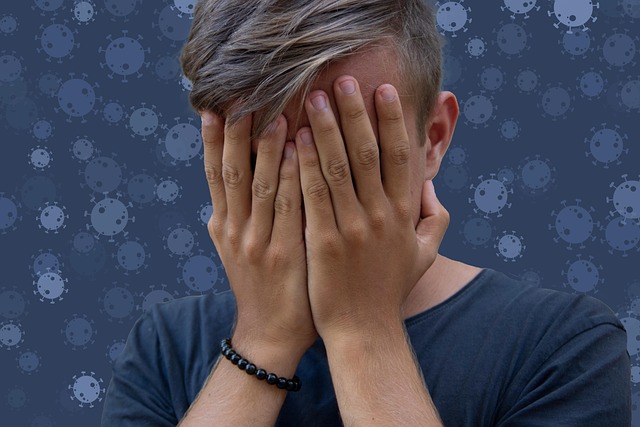
Acupuncture, an ancient practice rooted in traditional Chinese medicine, has gained recognition as a powerful complementary therapy for promoting holistic mental health. By inserting thin needles at specific points on the body, acupuncturists target energy pathways known as meridians to restore balance and facilitate the natural healing process. This technique is based on the belief that energy flow through these meridians influences our overall well-being, including mental and emotional states.
When it comes to balancing mind and body, acupuncture offers a non-invasive approach to managing stress, anxiety, and depression. By addressing underlying energetic imbalances, this therapy can help reduce symptoms associated with mental health challenges. The soothing needles stimulate specific points, encouraging the release of endorphins, the body’s natural painkillers and mood elevators, which can contribute to a sense of calm and improved mental clarity. This holistic approach to mental healthcare recognizes the deep connection between physical and psychological well-being, offering a unique way to support overall health and enhance quality of life.
Diet and Nutrition's Impact on Mental Clarity

In the realm of holistic mental health, diet and nutrition play a pivotal role in enhancing mental clarity. The food we consume doesn’t just fuel our bodies; it also significantly influences our cognitive functions. Nutrient-rich diets, abundant in omega-3 fatty acids, vitamins B and D, and antioxidants, have been linked to improved focus, memory, and overall mental sharpness. These essential nutrients support brain health by promoting neuronal communication and protecting against oxidative stress.
A balanced diet, incorporating whole grains, lean proteins, and a variety of fruits and vegetables, ensures the brain receives all the necessary building blocks for optimal performance. Conversely, dietary deficiencies can lead to cognitive impairments and increased symptoms of mental health disorders. By adopting a mindful approach to nutrition as part of a comprehensive holistic strategy, individuals can experience profound improvements in their mental clarity and overall well-being.
